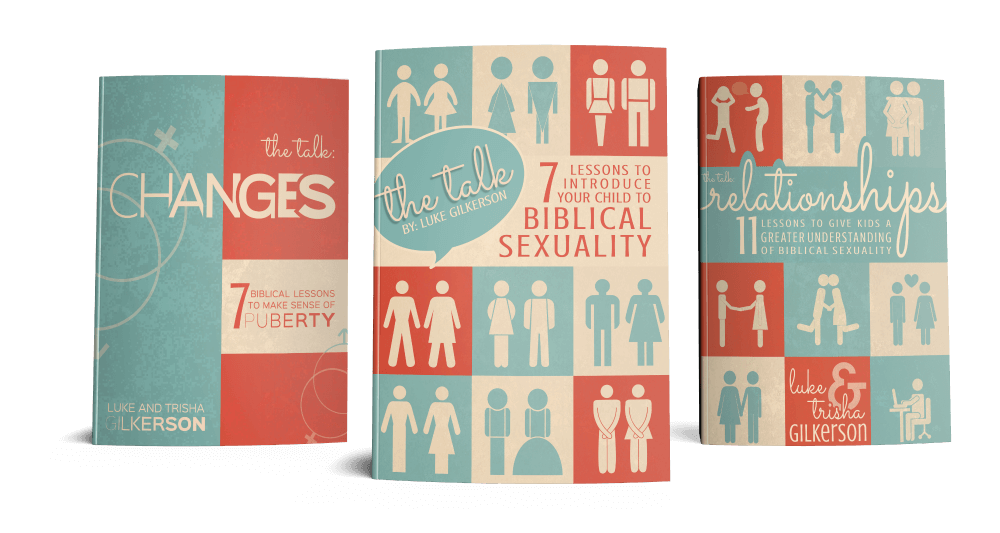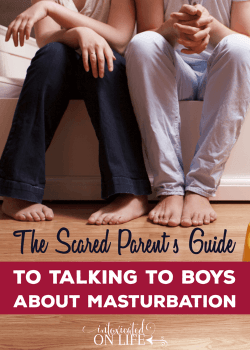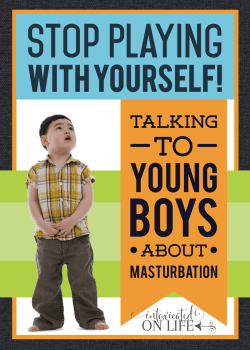We all have a sexual history, but for some of us that history is more riddled with sin than we would like to admit. You might know someone who glided through adolescence, young adulthood, and engagement with a firm resolve to say no to sexual sin. They got to the altar on their wedding day with little or maybe no regrets. Then there’s the rest of us.

Now that we—the guilty ones—are parents and watching our kids grow up, we know we should teach our kids about godly sexuality, but we feel terribly unqualified.
We didn’t receive the best sex ed from our parents.
And to top it off, we also feel like our past somehow makes anything we say about sex less meaningful or authoritative.
Facing My Skeletons
Throughout my teens and most of my twenties, I did a lot of things wrong. I had my fair share of short-lived, shallow relationships. I knew nothing about guarding my heart or my eyes. My physical boundaries were practically non-existent. As a Christian, I knew sexual intercourse before marriage was a bad idea, so I adopted the “anything-but” attitude in my relationships. Use your imagination. On second thought… don’t.
You get the idea.
How can parents like me be guides to our sons and daughters as they grow into men and women?
1. Remember, we are not the standard for our kids. Christ is.
In anything we teach our kids (including sexuality), on our best days we can say, “Be imitators of me, as I am of Christ” (1 Corinthians 11:1). But regardless if we are on or off our game, our goal is always the same: we point our kids to Christ as their example.
Being sinners does not disqualify us from being our kids’ parent. It disqualifies us from being their savior. They already have one of those.
2. Being transparent about sin does not cripple our authority.
Some parents—myself included—can get caught in the trap of believing that our parental authority rests in our holiness or always being “right.” But this is false. Our authority as a parent has been given to us by the highest Authority, and He is well aware of just how flawed we are. We have the authority to teach our children because He says we do, not because we have our act together.
Knowing this frees us up to have some transparency with our kids about our past. We can admit to our children that we are sexual sinners, knowing that we still have God’s authority to shepherd them through their own sexual struggles.
3. Being transparent about sin allows us to model repentance.
When it comes to sexual temptations, this world is full of them. As our kids enter adolescence, they will have their sinful nature within them, raging hormones surging through them, peer pressure around them, sexualized media at every turn, and all the supernatural forces of wickedness in the heavenly realms against them.
Part of what it means to prepare them sexually is to show them what repentance looks like, and this is what our sexual history can teach them. We can teach them from experience what it means to repent of a lustful thought, an inappropriate relationship, an affair with porn, or an obsession with sex. Speaking to your children as a fellow sinner shows them they are not alone in temptation. It shows them you are an experienced ally who can help them.
4. Balance transparency with wise discernment.
Confessing sexual sins to our children serves very specific purposes. We can teach them about the strength of sin within and the sly devices of the devil. We can teach them about the importance of boundaries. We can teach them about the consequences of sin. We can teach them about repentance and finding satisfaction in Christ. The details of our transparency should always serve a purpose. Anything beyond this may not be necessary.
Our children do not need to hear about all the gory details of our past. Their youth, lack of experience, and emotional immaturity will not allow them to really appreciate the details for what they are. Some details might only serve to confuse or titillate them. Be discerning. When you share specific details, have a reason for sharing them.
5. Talk as much (or more) about God’s grace as we do our sin.
As my children get older, I look forward to telling them how God transformed my own heart. I look forward to telling them that I went from habitually consuming pornography to helping others who struggle through my writing and books at Covenant Eyes.
Because of the coming of Christ, “where sin increased, grace abounded all the more” (Romans 5:20). This should come through in our conversation with our children. The flavor of our conversation should be a celebration of God’s grace in light of the seriousness of our sin.
God’s grace covers not only the guilt of sin but overcomes the grip of sin. As we talk about past sexual struggles, we should speak to our kids freely about how God’s grace has transformed us. Not only should we gladly proclaim the joy of being forgiven, but we should share how God has redeemed our sexual desires.
The bottom line is: Our children need to be taught about godly sexuality, and no amount of sexual sin in our past should keep us from talking. In fact, our past sin is a perfect opportunity for God to demonstrate to us how He can use our greatest failures for His glory.
Let the Bible Break the Ice
One of the best ways to do it is to allow the Bible to break the ice for you. The Bible isn’t bashful about the subject of sex. It is frank without being crass, and we can use it to broach sexual subjects with our kids.
This is the reason why my wife and I wrote The Talk series: 3 books for parents to use with their kids of different ages. All of them are short, simple Bible studies with biology lessons woven in.
- The Talk is for kids ages 6 to 10 and addresses basics of human reproduction and God’s purpose for marriage and family.
- Changes is for kids ages 8 to 12 and looks at God’s perspective on the changes of puberty.
- Relationships is for kids ages 11 to 14 and prepares kids to think rightly about sexual attraction and their new desires for intimacy.
LEARN MORE ABOUT THE WHOLE SERIES












Thanks so much for posting this. I especially appreciate you pointing out that our authority as parents isn’t dependent on our qualifications but on God’s choosing us for the role. When we understand that and rely on His grace to enable us, we can in good conscience set biblical standards for our kids even in areas where we fell short.
It is good to know, isn’t it. 🙂
I am able to speak out more because I have recognize my shame! Dealing with the shame issue comes first. If we can’t come to grips with that and that we don’t need to be ashamed anymore we will never be able to talk to our kids. God’s teaching me.
Exactly. We need to believe that Christ has taken our shame on the cross. Overcoming shame from the past can be a very difficult thing to overcome emotionally.
Wow! Awesome! I recently started a platform called The Narrow Gateway which is also a platform of resources to encourage Christian living. I have an online talk show and our next topic is “Narrow Way Parenting in a Highly Sexualised World”. I came across your book on 7 Lessons and wow wow wow! Will be using it as a base resource for sure! And I also love this piece on how to use your past as a tool in helping your child navigate this highly sexualised world! Wow!
Glad you like it! Thanks. And if you’re looking for call-in guests for your talk show, I’d be happy to come. I love educating people about these subjects.
Thank you so much. My 11 year old son and I are reading your book about relationships and it has helped us a lot. I am so thankful to our dear Lord Jesus, God I found you. We will be reading all 3 books.
Grace and peace
Sister Janeth